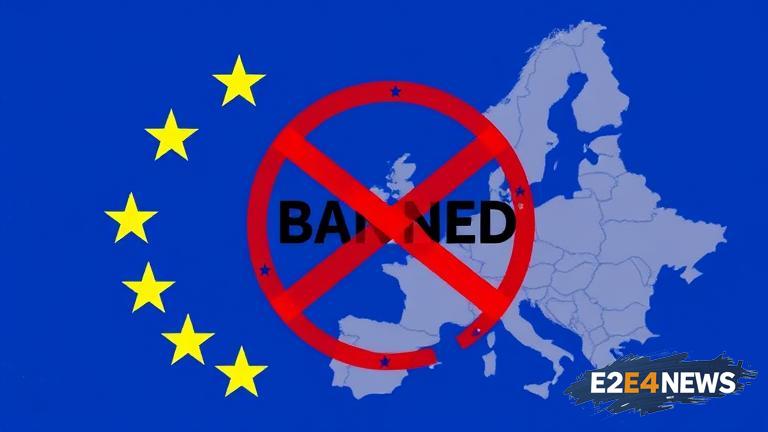A recent report has exposed the European Union’s failure to effectively block banned Russian media sites, allowing them to continue operating and spreading disinformation across the continent. The report, which was released earlier this week, found that many of the banned sites are still accessible in several EU countries, including Germany, France, and Italy. This is despite the EU’s efforts to impose sanctions on Russia in response to its invasion of Ukraine. The banned sites, which include popular Russian news outlets such as RT and Sputnik, have been accused of spreading propaganda and disinformation about the conflict. The report’s findings have raised concerns about the EU’s ability to effectively enforce its sanctions and protect its citizens from Russian disinformation. The EU has been criticized for its slow response to the crisis, with some arguing that it has not done enough to counter Russian propaganda. The report’s authors have called for the EU to take stronger action to block the banned sites and prevent the spread of disinformation. They have also urged the EU to increase its support for independent media outlets in Russia, which are struggling to operate under the country’s strict censorship laws. The EU has imposed several rounds of sanctions on Russia since the start of the conflict, including restrictions on Russian media outlets. However, the report’s findings suggest that these sanctions have not been effective in preventing the spread of disinformation. The report’s authors have pointed to several reasons for the EU’s failure to block the banned sites, including the use of virtual private networks (VPNs) and other circumvention tools. They have also noted that some EU countries have been slow to implement the sanctions, allowing the banned sites to continue operating. The report’s findings have sparked a heated debate about the EU’s response to the crisis, with some arguing that it needs to take a more aggressive approach to countering Russian disinformation. Others have argued that the EU should focus on supporting independent media outlets in Russia, rather than trying to block banned sites. The report’s authors have also noted that the EU’s failure to block the banned sites has had significant consequences, including the spread of disinformation and the erosion of trust in the media. They have argued that the EU needs to take a more comprehensive approach to addressing the crisis, including increasing its support for fact-checking initiatives and promoting media literacy. The report’s findings have also raised concerns about the impact of Russian disinformation on the EU’s democratic processes. Some have argued that the spread of disinformation has contributed to the rise of populist and nationalist movements in the EU, which have been fueled by anti-EU sentiment. The report’s authors have called for the EU to take stronger action to protect its democratic processes from the influence of Russian disinformation. They have also urged the EU to increase its cooperation with other countries, including the United States, to counter the spread of disinformation. The report’s findings have sparked a wider debate about the role of social media in the spread of disinformation. Some have argued that social media companies have not done enough to prevent the spread of disinformation, while others have argued that they are doing enough. The report’s authors have noted that social media companies have a critical role to play in preventing the spread of disinformation, and have called for them to take stronger action to address the issue. The EU has also faced criticism for its handling of the crisis, with some arguing that it has not done enough to support Ukraine. The report’s authors have argued that the EU needs to take a more comprehensive approach to addressing the crisis, including increasing its support for Ukraine and promoting a peaceful resolution to the conflict. The report’s findings have significant implications for the EU’s response to the crisis, and highlight the need for a more effective approach to countering Russian disinformation. The EU needs to take stronger action to block banned Russian media sites, increase its support for independent media outlets in Russia, and promote media literacy and fact-checking initiatives. The report’s authors have also noted that the EU needs to increase its cooperation with other countries to counter the spread of disinformation, and to protect its democratic processes from the influence of Russian disinformation.





